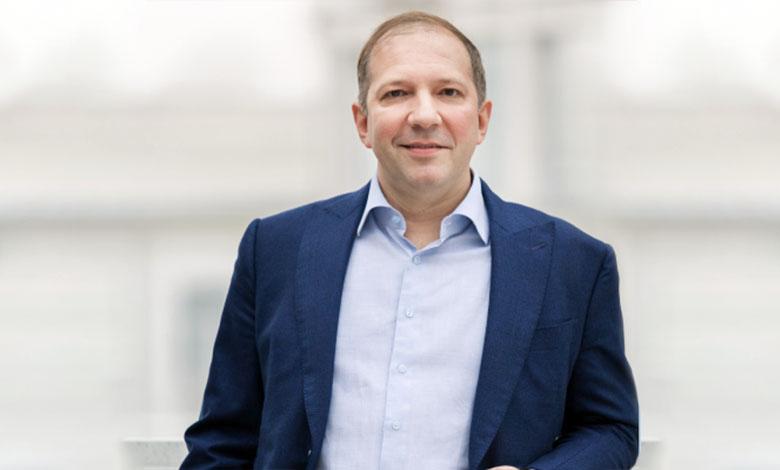What to do with money during war: investments and the philosophy of capital in the assessments of Taras Kyrychenko

The question of what to do with money sooner or later arises before everyone who has begun to earn more than is needed for basic expenses. In periods of war and instability, it sounds especially acute not only because of the risks of devaluation or losses, but also because the investment decision affects not only personal interests, but also a wider context: relationships and loved ones, responsibility to children, attitude to the country in which you live. Those Ukrainians who have kept their businesses, salaries, and stable income are faced with the question not only of how to save their funds, but what to do with them next. Is it morally permissible to invest when a country is at war? Does money have the right to work for personal gain while others give their lives on the front lines? And, in the end, how to maintain a balance between one’s own well-being and responsibility for the joint future? He gives these questions answers Taras Kyrychenko is a banker, investor, entrepreneur, member of a number of supervisory boards.
Taras Kyrychenko begins his reasoning by noting that in the conditions of war, society is divided into the front and the rear, and those who are in the rear and have financial resources cannot afford neutrality. He emphasizes that perhaps the best investment today is an investment in the preservation of the country — in its people, its economy, its future. And it is from this perspective that he suggests looking at the issue of personal money, regardless of whether it is the first serious earnings or already formed capital.
Kyrychenko believes that the first investments should be directed not to assets, but to three valuable things: yourself, friends and a partner. He notes that education is the most important start, as it allows you to understand yourself, get rid of imposed desires and focus on what is really needed. Investing in friends, in his opinion, is no less important — he believes that the formation of a reliable environment has not only emotional, but also practical value. Regarding the partner, he emphasizes that support in a relationship is not a romance, but a life strategy. These are the things in which you should invest resources even before building a classic investment portfolio.
Speaking about the philosophy of money, Kyrychenko believes that it is a bad master, but a good servant. He warns that the desire to accumulate for the sake of possession is a moral dead end, and emphasizes that happiness does not come with status items or more expensive cars. Mass culture creates false guidelines, and that is why it is important to learn to distinguish your true needs from external patterns.
The banker points to the importance of a quality educational environment, in particular peer-to-peer communities in which the exchange of ideas is a constant practice. You need to learn from those who really know the business, and advises not to limit yourself to only official programs – in his opinion, mentoring and books can give more than a classic MBA. At the same time, he recognizes the value of training programs if they meet the specific strategic needs of a person.
Turning to the technical part of investing, Kyrychenko emphasizes that after accumulating capital – whether it is a million or ten million dollars – it is critically important to build a balanced, diversified portfolio. He offers an approximate structure that he considers adequate:
- 40-50% of assets should be placed in real estate — preferably income-generating, divided by country and class.
- 10–15% — in cash or its equivalents (current accounts, short-term bonds).
- 10–20% — in venture companies (startups and businesses with high growth rates).
- 15% — in shares, mostly American, partly European.
- 15% — in fixed income instruments (bonds, ETFs, funds, private debt).
Separately, the banker allows a small share of speculative instruments, such as cryptocurrency or non-standard assets, but emphasizes that the volume of such investments should be minimal. The main principle is the ability to withstand loss – if the fall of one asset class knocks a person out of psychological balance, it means that the portfolio structure is built incorrectly.
Kyrychenko considers it correct to have part of the assets in Ukraine, but not more than half. Aim for a share of 25–50% within the country, and keep the rest in other jurisdictions. Ukraine has certain tools for investing even in war conditions:
- domestic state loan bonds in hryvnia, covering inflation;
- real estate as a classic tool for the middle class;
- corporate bonds — in particular, “Novay poshta” or “Novopey”;
- deposits in foreign currency.
He notes that the stock market in Ukraine currently does not exist in a full-fledged form, but hopes that this situation will change in the future.
The banker separately pays attention to new sectors — military technologies (miltech) and energy. He emphasizes that miltech is a powerful trend, but most players in this market are not yet ready for transparent interaction with investors. In the field of energy, in his opinion, prospects will depend not on production, but on the ability to realize energy. If the investor has a buyer, it can be a profitable business. If not, the economics of the project will not work out.
Kyrychenko openly talks about his own mistakes in the field of startup investing. He admits that he invested too early, did not always choose high-quality projects, and sometimes worked without proper legal registration. It is much safer to make twenty small investments than to invest a large amount in one company and hope for a miracle. This approach reduces risks and allows you to act systematically.
In conclusion, Kyrychenko touches on the topic of transferring capital to the next generations. He believes that the large sums that children receive without effort can destroy the motivation for self-realization. For example, if he himself had several hundred thousand dollars in his account in his youth, he probably would not have engaged in business with the same persistence. Instead of unconditional transfer of funds, he advises creating trust funds that give access to money only under certain conditions. But the key in this transfer is not resources as such, but an understanding of how to handle money, why it is, and how it relates to a life strategy.





